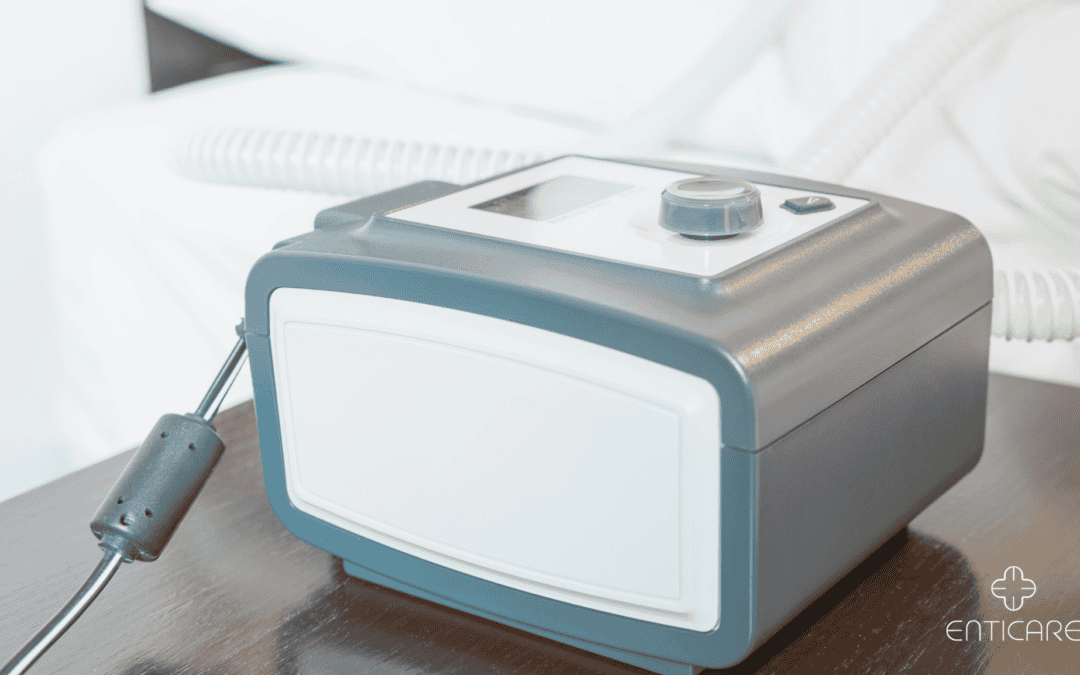Choosing the right sleep therapy device can significantly impact your quality of life. A BiPAP machine, or Bilevel Positive Airway Pressure machine, provides different air pressure levels for inhalation and exhalation, offering benefits for those with central sleep apnea (CSA) and other conditions requiring structured airway support. Many people with sleep apnea face the dilemma of whether to use a BiPAP (Bilevel Positive Airway Pressure) or a CPAP (Continuous Positive Airway Pressure) machine. This guide will explore the differences, benefits, and considerations to help you determine which option is better for you.
Attracting Attention: Understanding the Basics of CPAP and BiPAP
What is Continuous Positive Airway Pressure (CPAP)?
CPAP stands for Continuous Positive Airway Pressure. It delivers a constant, steady flow of air to maintain open airways during sleep. CPAP machines are the most common treatment for obstructive sleep apnea (OSA) and have proven effectiveness in reducing apnea episodes.
What is Bilevel Positive Airway Pressure (BiPAP)?
BiPAP, or Bilevel Positive Airway Pressure, provides two levels of pressure: a higher one for inhalation and a lower one for exhalation. BiPAP therapy offers significant benefits, including easier exhalation and improved comfort for patients with complex respiratory conditions. This dual-pressure system can make breathing easier and more comfortable for some patients, particularly those with more complex respiratory conditions. Additionally, BiPAP can be beneficial for patients with chronic obstructive pulmonary disease, as it helps manage their breathing difficulties more effectively.
Key Differences Between CPAP and BiPAP
The main difference between CPAP and BiPAP lies in the pressure settings. While CPAP delivers a single, constant air pressure, BiPAP adjusts the air pressure for inhalation and exhalation. BiPAP machines deliver inspiratory positive airway pressure (IPAP) when a sleeper is breathing in and expiratory positive airway pressure (EPAP) when a sleeper is breathing out. This can offer greater comfort and breathing support for individuals with specific needs, such as central sleep apnea or other respiratory issues.
The Benefits of CPAP and BiPAP
Benefits of CPAP
CPAP machines are often the first line of treatment for OSA due to their simplicity and effectiveness. They:
- Provide a consistent airway pressure that prevents airway collapse
- Help reduce snoring and improve sleep quality
- Are generally more affordable and widely available
Benefits of BiPAP
BiPAP machines offer several advantages, especially for those who struggle with standard CPAP therapy. They deliver higher air pressure while the sleeper is breathing in to keep the airway clear of obstruction and prevent breathing disruptions. They:
- Offer more customized pressure settings for inhalation and exhalation
- Provide relief for patients with central sleep apnea or complex sleep apnea syndrome
- Can be beneficial for individuals with other respiratory conditions, such as COPD
Comfort and Compliance
Comfort plays a crucial role in the success of sleep therapy. BiPAP machines often offer greater comfort due to their variable pressure settings, which can enhance compliance among users who find CPAP therapy challenging. Higher compliance rates lead to better overall health outcomes and improved quality of life
Determining Which Machine is Right for You
Medical Conditions and Recommendations for Obstructive Sleep Apnea
Your medical condition and the severity of your sleep apnea will influence the choice between CPAP and BiPAP to treat sleep apnea. For instance:
- Individuals with OSA may find CPAP sufficient and effective
- Patients with central sleep apnea or complex sleep apnea syndrome may benefit more from BiPAP
- Those with additional respiratory conditions should consider BiPAP for enhanced breathing support
Comfort and Tolerance
Tolerance to therapy is another critical factor. Some people find the single-pressure setting of CPAP uncomfortable, particularly during exhalation. BiPAP’s adjustable pressures can alleviate this discomfort, making it easier for patients to adhere to their treatment regimen.
Cost and Accessibility
Cost and accessibility also play a role in decision-making. CPAP machines are generally less expensive and more accessible through insurance providers. BiPAP machines, while potentially more costly, may be necessary for effective treatment in specific cases. Discussing options with a healthcare provider can help determine the most suitable and cost-effective choice.
Making an Informed Decision
Consulting with Healthcare Providers
Consulting with a healthcare provider is essential when choosing between CPAP and BiPAP machines. A sleep specialist can assess your condition, review your medical history, and recommend the most appropriate therapy based on your specific needs.
Trying Both Options
In some cases, trying both CPAP and BiPAP may be beneficial. Some providers offer trial periods or rental options to allow patients to experience each machine’s benefits and drawbacks. This hands-on approach can help you make a more informed decision.
Regular Monitoring and Adjustments
Once you begin therapy, regular monitoring and adjustments are crucial. Positive airway pressure (PAP) therapy, including CPAP machines, plays a vital role in maintaining effective treatment by keeping air passages open during sleep. Follow up with your healthcare provider to track your progress, address any issues, and adjust pressure settings as needed. Continuous feedback ensures your therapy remains effective and comfortable.
Conclusion: Taking the Next Step
Choosing the right sleep therapy device can transform your life. Understanding the differences between CPAP and BiPAP, along with their respective benefits and considerations, empowers you to make an informed decision. Whether you need the simplicity of CPAP or the advanced support of BiPAP, prioritizing your comfort and health is key.
For personalized advice and assistance with selecting the right sleep therapy device, schedule an appointment with our experts at Enticare or call us at 480-214-9000. Our experts can help you find the perfect solution for a restful and comfortable night’s sleep.

